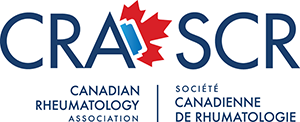2011 Grant Awards
The posters and papers listed below each grant arise from work facilitated through the grant funding.
What matters the most for parents, patients and clinicians in predicting the course of Juvenile Idiopathic Arthritis?
Principal Investigator: Guzman, J (PDF)
Co-investigators: Benseler, S; Berard, R; Brant, R; Duffy, C; Jurencak, R; Oen, K; Petty, R; Shiff, N; Tucker. L
Project Summary
In this CIORA-funded study, 49 patients, parents and clinicians participated in 6 focus groups and 132 reciprocal interviews (participants interviewed each other) in three Canadian cities between March and November 2012. Participants were asked what clinical features should be used to define JIA disease course (the experience of JIA and its treatment over time).
We found that traditional descriptions of the disease course of juvenile arthritis, based on the number and location of joints affected or the number of cycles of disease activity were not very informative for patients, parents and clinicians. Five clinical features were identified as top priority in describing the course of JIA: pain, quality of life, medication requirements, medication side-effects and number of active joints. These features differ from the six core variables currently endorsed by professional associations, with active joints being the only one included in both sets.
A second paper focused on the emotions reported by parents of children with JIA. Parents experienced a complex series of negative and positive emotions, including anxiety, confusion, indignation, shock, fear, and sorrow, together with sympathy, admiration, hope, trust, and gratitude. These varied with the timing of diagnosis and severity of their children’s disease symptoms and medications side-effects. Parents’ affective journeys were similar to rollercoaster rides made of intense emotional ups and downs beginning in the period leading up to diagnosis, and continuing throughout the course of the illness as their children receive and respond to treatments, face unexpected disease fluctuations, and get on with their daily lives.
Poster Presentations
Presented at the 2013 Canadian Rheumatology Association meeting.
Presented at the 2013 American College of Rheumatology Meeting.
Presented at the 2014 the Pediatric Rheumatology Symposium (PRSYM).
Published Literature
- Guzman J, Gómez-Ramírez O, Jurencak R, Shiff N, Berard R, Duffy C, Oen K, Petty R, Benseler S, Brant R, Tucker L, What Matters Most for Patients, Parents, and Clinicians in the Course of Juvenile Idiopathic Arthritis? A Qualitative Study, J Rheumatol (2014)
- Gómez-Ramírez O, Gibbon M, Berard R, Jurencak R, Green J, Tucker L, Shiff N, Guzman J, A recurring rollercoaster ride: a qualitative study of the emotional experiences of parents of children with juvenile idiopathic arthritis (PDF). Pediatric Rheumatology (2016)

